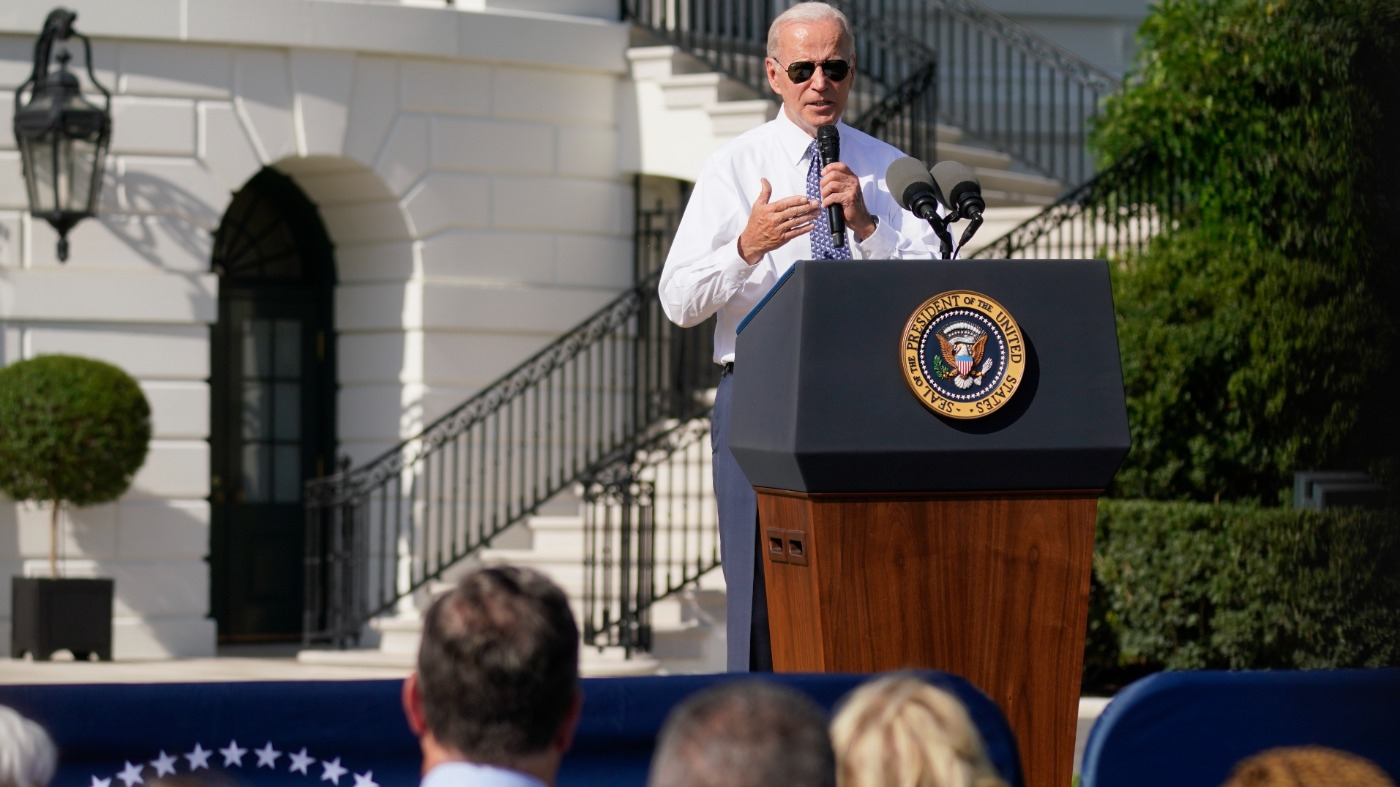President Biden has officially announced that he’s running for a second term in 2024.
Among the first-term achievements he touted were his actions to address climate change. There’s a good reason for that — Biden’s reelection may well hinge on turnout among young voters who care passionately about the climate.
But worryingly for Biden, a Fossil Free Media and Data for Progress poll this spring showed a dramatic drop in approval for the president’s climate and energy policies, particularly among independent voters and youth. The dip followed Biden’s decision to approve the Willow oil drilling project in Alaska, breaking a campaign promise to end oil and gas leasing on public lands and waters.
A Change.org petition urging the administration to stop the project has reached more than 5 million signatures. Another 2.3 million people submitted comments to the White House urging Biden to reject the project. TikTok videos criticizing the project drew more than 650 million viewers.
When Biden approved the project anyway, youth climate activist Magnolia Mead wrote that the decision “felt like a slap in the face” and demonstrated “a disregard for the people who elected” Biden. Protests erupted outside Vice President Kamala Harris’s appearance on the Stephen Colbert Show and the president’s conservation summit at the Department of the Interior.
Although Biden has signed off on significant investments in clean energy, the Willow decision was by no means an anomaly. Barely three weeks after the Willow decision, the Energy Department gave final approval for a massive gas export terminal in Alaska.
This isn’t just bad politics by Biden. It’s bad science.
Eliminating greenhouse gas emissions requires not just building renewable energy, but phasing out fossil fuels. A minimum first step is to stop building new fossil fuel infrastructure since it “locks in” greenhouse gas emissions for the often decades-long lifetime of the infrastructure.
The United Nations Environment Program and civil society partners have made this case in a series of reports. The Intergovernmental Panel on Climate Change (IPCC) notes the emissions lock-in effect of new fossil fuel infrastructure in its most recent report. This conclusion is also supported by several academic studies.
Yet, the Biden administration has approved more oil and gas drilling permits on public lands than the Trump administration did over an equivalent period of time. They’re permitting a massive buildout of oil and gas export terminals on the Gulf Coast and have approved other harmful fossil fuel projects like the Mountain Valley Pipeline.
Even the Biden administration’s biggest climate achievement, the Inflation Reduction Act, mandated oil and gas leases on public lands and waters as a condition for renewable energy leases and offered subsidies for unproven, dangerous carbon capture and storage (CCS) technologies to prolong the life of the fossil fuel industry.
A rule on limiting electric power plant emissions the Environmental Protection Agency (EPA) is likely to propose soon also relies on CCS technology.
But if science doesn’t move Biden, maybe politics will.
Outrage has been building up among climate activists, and more broadly among young people, since the early days of his administration. In June 2021, the White House was twice blockaded by climate protesters outraged by revelations about the corrupting influence of oil giant Exxon on negotiations over the Infrastructure, Investment and Jobs Act.
A few months later, in October 2021, communities at the frontlines of the U.S. fossil fuel buildout and their supporters, numbering in the thousands, demonstrated at the White House over several days to demand Biden take executive action to end the era of fossil fuels.
The passage of the IRA did not mollify Biden’s climate and environmental justice critics. The Climate Justice Alliance publicly criticized harmful compromises in the bill, while the Indigenous Environmental Network created factsheets explaining its serious flaws.
Biden, in short, is alienating key constituencies in his base. The youth-led Sunrise Movement issued a stark warning to Biden: The youth vote “is vital to Democrats if they hope to win in 2024.”
Biden still has the opportunity to win back that trust by reversing course on fossil fuels.
He can direct federal agencies to stop appealing court decisions overturning permits for controversial projects such as the Mountain Valley Pipeline. He can also direct them to stop issuing permits for new fossil fuel infrastructure. He can use his executive power to ban crude oil exports. Best of all, he can declare a climate emergency, unlocking a wide range of powers to transition the U.S. from fossil fuels.
Biden can still take decisive action in defense of people and the planet — and maybe save his political career, too.
Basav Sen directs the Climate Policy Program at the Institute for Policy Studies.
